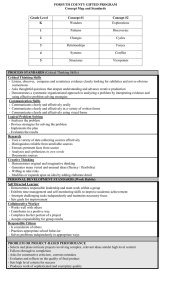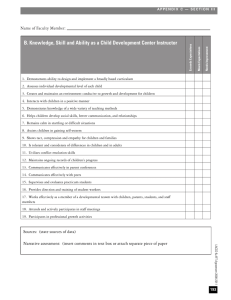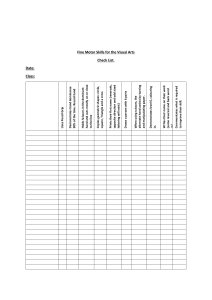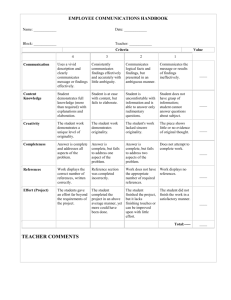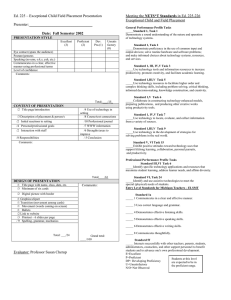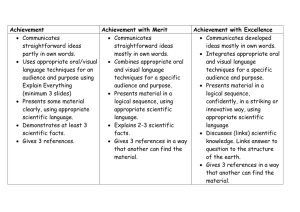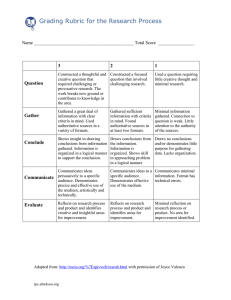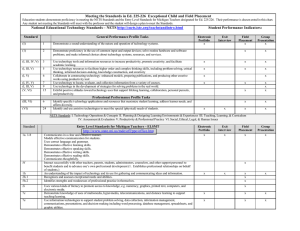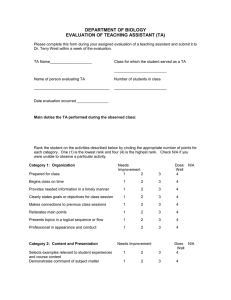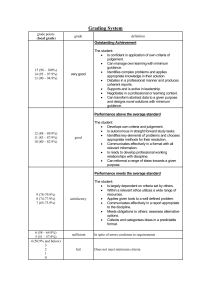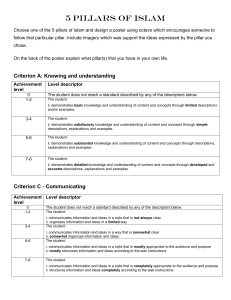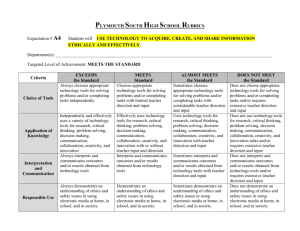FLORIDA ATLANTIC UNIVERSITY BEHAVIORAL INDICATORS
advertisement
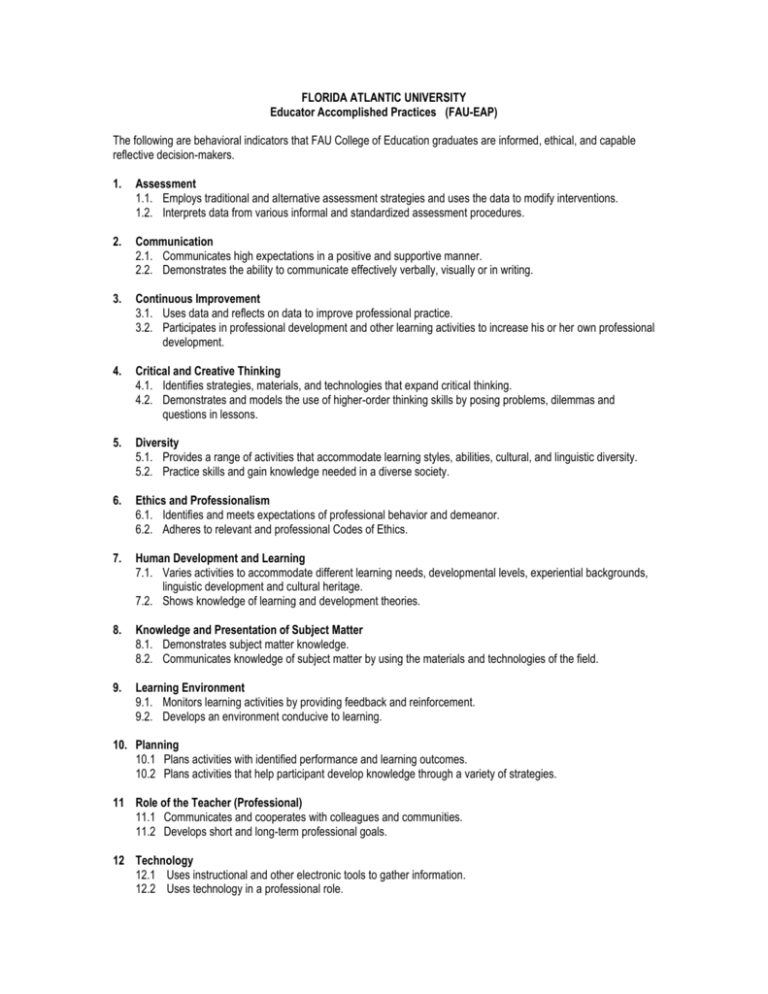
FLORIDA ATLANTIC UNIVERSITY Educator Accomplished Practices (FAU-EAP) The following are behavioral indicators that FAU College of Education graduates are informed, ethical, and capable reflective decision-makers. 1. Assessment 1.1. Employs traditional and alternative assessment strategies and uses the data to modify interventions. 1.2. Interprets data from various informal and standardized assessment procedures. 2. Communication 2.1. Communicates high expectations in a positive and supportive manner. 2.2. Demonstrates the ability to communicate effectively verbally, visually or in writing. 3. Continuous Improvement 3.1. Uses data and reflects on data to improve professional practice. 3.2. Participates in professional development and other learning activities to increase his or her own professional development. 4. Critical and Creative Thinking 4.1. Identifies strategies, materials, and technologies that expand critical thinking. 4.2. Demonstrates and models the use of higher-order thinking skills by posing problems, dilemmas and questions in lessons. 5. Diversity 5.1. Provides a range of activities that accommodate learning styles, abilities, cultural, and linguistic diversity. 5.2. Practice skills and gain knowledge needed in a diverse society. 6. Ethics and Professionalism 6.1. Identifies and meets expectations of professional behavior and demeanor. 6.2. Adheres to relevant and professional Codes of Ethics. 7. Human Development and Learning 7.1. Varies activities to accommodate different learning needs, developmental levels, experiential backgrounds, linguistic development and cultural heritage. 7.2. Shows knowledge of learning and development theories. 8. Knowledge and Presentation of Subject Matter 8.1. Demonstrates subject matter knowledge. 8.2. Communicates knowledge of subject matter by using the materials and technologies of the field. 9. Learning Environment 9.1. Monitors learning activities by providing feedback and reinforcement. 9.2. Develops an environment conducive to learning. 10. Planning 10.1 Plans activities with identified performance and learning outcomes. 10.2 Plans activities that help participant develop knowledge through a variety of strategies. 11 Role of the Teacher (Professional) 11.1 Communicates and cooperates with colleagues and communities. 11.2 Develops short and long-term professional goals. 12 Technology 12.1 Uses instructional and other electronic tools to gather information. 12.2 Uses technology in a professional role.
